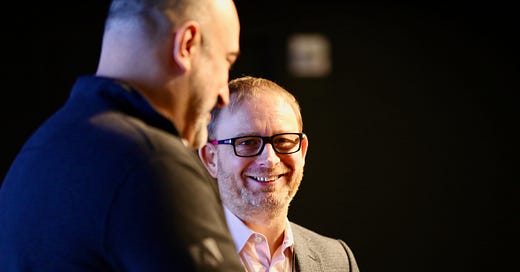Can a 140-year-old organization focus on outcomes?
From outputs to outcomes: the Elsevier journey.
Can a 140-year-old organization adopt OKR and become more outcome driven? And can they do it not within their internal “startup incubator,” but on their main product, a billion-dollar business? How do OKR and outcomes thinking fit into a broader transformation journey?
In Silicon Valley, Google and others adopted OKR when they were still early stage startups—OKR was already part of their culture as they scaled. But what happens when a mature, multinational organization adopts OKR?
I had the pleasure of teaming up with Ian Harvey, Senior Portfolio Director at Elsevier, to tell the story of their journey with OKR at the Business Agility Conference in NYC. The talk, which you can watch below, shares the inside view of Elsevier’s journey, including some of the key lessons learned and the difficulties and challenges faced.
Now let me share a bit about the background of our presentation.
Founded in 1880, Elsevier is a $3 billion multinational organization that evolved from a content provider to supporting researchers, governments, and healthcare professionals with digital products.
During that transition, the organization began to adopt modern product management practices, run experiments, and focus on world-class technology delivery, but maintained the commitment to continuous improvement.
In 2017, a meeting of the organization’s top managers identified engagement and alignment as areas for improvement. The existing approach to connecting strategy to execution and setting goals was hindering this.
A small core team was formed and they identified OKR as the approach to drive alignment and engagement. They reached out to me, and we worked together with the rest of Elsevier to help the company adopt outcome-based planning and OKR.
Two years later, Elsevier has benefited from greater employee engagement and improved NPS and customer retention on critical platforms.
I want to say a very special thanks to Rose L’Huillier, VP of Product Management at Elsevier, who was crucial to making this story happen and was extremely helpful when we were preparing our talk.




